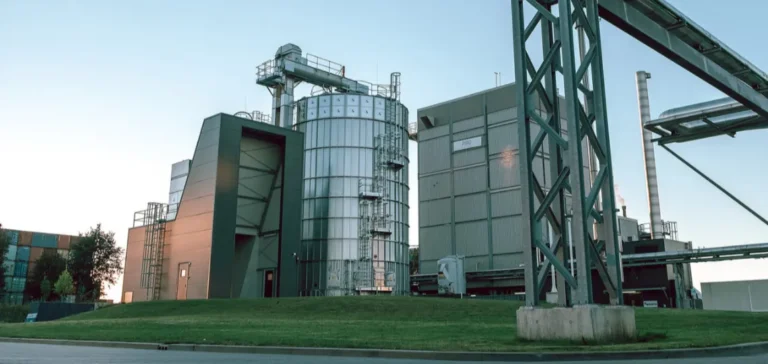BTG Bioliquids BV, a Netherlands-based company specialising in fast pyrolysis, and NanosTech Technology & Innovations Ltd., a Canada-based catalyst development firm, have signed a memorandum of understanding to deploy an integrated solution for producing advanced biofuels from sustainable biomass. The partnership aims to convert agricultural and forestry residues into drop-in liquid fuels compatible with existing infrastructure.
A technological alliance for upgrading complex bio-oils
BTG Bioliquids brings its fast pyrolysis technology to convert biomass into bio-oil, while NanosTech contributes its proprietary Aquaprocessing (AQP) platform, which upgrades these challenging bio-oils into fully compatible fuels such as renewable diesel, sustainable aviation fuel (SAF), and marine fuels. The system eliminates the need for external hydrogen, offering a lower-cost pathway for bio-oil conversion.
The two partners plan to construct a 500-barrel-per-day modular biorefinery located near biomass sources to minimise transport costs and enhance profitability. The project is currently being sited in either Canada or Europe, depending on industrial and regulatory opportunities.
Commercial deployment targeted by end of 2025
Discussions are ongoing with industrial and governmental stakeholders to accelerate deployment by the end of 2025. The modular system is designed to bypass the capital intensity of conventional refining infrastructure and targets hard-to-electrify sectors such as aviation, maritime shipping, and heavy road transport.
According to BTG Bioliquids, the project represents a scale shift in the advanced biofuels sector. “This collaboration is a strong signal to the market that advanced biofuels are now a commercially viable reality,” said Gerhard Muggen, Managing Director of BTG Bioliquids.
An economic model based on proximity and flexibility
The modular configuration allows rapid implementation and adaptation to local biomass availability, while meeting industrial standards. By removing the dependency on traditional refinery infrastructure, the companies aim to optimise production costs and create new value chains for bio-based feedstock producers.
For Myles McGovern, Chief Executive Officer of NanosTech, the catalytic approach offers an industrially relevant solution. “Our technology efficiently converts renewable carbon into drop-in fuels without requiring hardware changes to existing engines,” he stated.






















